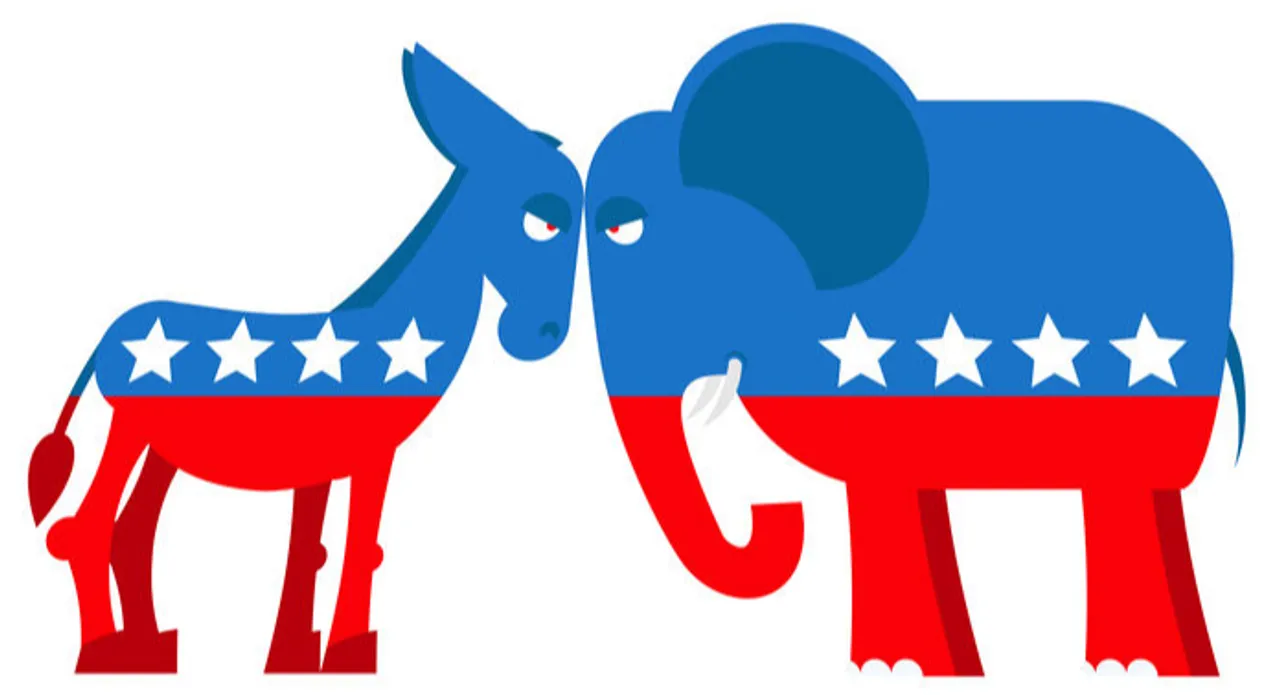Red Doctors and Blue Doctors. What about the Color Purple?

popaukropa/123RF.com
Politics is a very strange thing. It changes your friends and your enemies faster than the turnover in a schoolyard playground. It is a flawed system in which the disgruntled are tempted to think that the only people politicians represent are themselves. Like most responsible people, politicians are neither as bad as their detractors say nor as good as they themselves feel they are. A moral compass is usually there, but it is fragile because its needle is easily magnetized toward the politician him or herself.
Being a physician requires a crystal-clear moral compass because it’s too hard and too important of a job to do for just money. The labor, whether it’s cost efficient or not, is worth the satisfaction of doing one’s best while helping someone out the most. For doctors, their moral compass points to true North; for politicians, it sometimes points the way the wind is blowing.
The Double-Edged Sword of Naïveté
In their hope and their desire to help, doctors are often naïve. This is a good thing. Naïveté is innocence, a state of being before the school of hard knocks, jades, and disillusions. It is trust, the foundation of all good relationships, and love. Doctors trust their patients because patients deserve it. They trust their politicians, too—at least the ones they vote for. In the politics of the United States, however, their naïveté has misled them into a simplistic duality between Democrats and Republicans:
- The Democrats are the benefactors, so the naïveté goes, leaders in the philosophy that health is an entitlement, a right. They are for people getting the care they need whether they can afford it or not. Theirs is the party that birthed Medicare and Social Security. What kind of a country does not take care of its own?
- The Republicans are the realists, so the naïveté goes. They know that the system has to work. There’s only so much money and the budget is best balanced when people are left to fend for themselves. While this may appear antithesis to what the Democrats believe, it is argued that the profit motive moves civilization more than necessity. More profit means more incentive, more incentive means more creativity, more creativity means more things that can be made and bought, and more things means that people end up happier with their smart phones, wafer-thin TVs, and next-day Amazon delivery.
This duality is deceptive: quality of health vs. quality of life.
Where Do Doctors Fit In?
All of this ultimately centers on money: Enough money to provide healthcare; enough money to pay the doctors and hospitals; enough money to prevent illness that will cost a lot more money. Money, like drugs, can make good people bad and turn smart people stupid. Meanwhile, during all of the paper flying in all directions, the doctor who negotiates the battle between rising overhead and decreasing reimbursements is tempted to wonder who, professionally and fiscally, are doctors’ friends? Who are there enemies? Democrats, Republicans, Libertarians, Socialists? No matter whom they voted for, the outcome probably would have been the same. And so, the naïveté ends when doctors realize that they are the only ones who can be trusted with their moral compass.
Recent history has shown that the Democrats invented Medicare, but under the Republicans’ watch, Big Health embraced Medicare’s reimbursement system. A percentage of what Medicare pays and when it’s applied to what the health industry pays to doctors and hospitals, becomes a percentage of a percentage of a percentage if you’re allowed to join their exclusive club (translated, “panel”).
Euphemisms, Euphoria, and Euthanasia
Meanwhile, euphemisms like Managed Care, Utilization Review, Quality Assurance, Cost Containment, and Resource Management have given the payors new actuary tables by which to pay doctors. Doctors are being tracked and labeled and, when the bottom line so indicates, euthanized (aka, excluded from the panel). Electronic medical records, “best practices”, evidence-based medicine (bell curve medicine), clinical practice guidelines, and other gentler, kinder terms for pruning costs to the bone have engendered a homogenized quality of care that risks making the “noble profession” a mere trade.
Can doctors really fight this? No, it’s done. Truth be told, the Democrats and the Republicans don’t care how much income a doctor gets, as long as the people are taken care of and as long as the budget can pay for it, respectively. The ones who know that when a doctor gets less they get more, however, may be may be misidentified as the real enemies. Being enemies requires enmity. Except with the Corleone family, in capitalism, enemies are not evil—they’re just competitors. It’s just business. It’s not personal.
What’s a big brain to do? That big brain that made it possible for them to memorize the Krebs Cycle also should allow doctors to figure ways to sidestep the pitfalls that have cropped up, making choppy the smooth sailing they expected in life and its accounts receivable.
Spiraling Doom or Opportunity?
Alternatives are cropping up. Concierge medicine, healthcare partnerships, even the old fee-for-services—all have reemerged in new veneers to take on these challenges to physicians’ independence and autonomy. Doctors have realized that their enemies are not the Democrats or the Republicans, nor the guys next door competing with them. They aren’t even the gatekeepers of reimbursements. True, the gatekeepers are the ones who get more money when they hand out less, and true, these payors not only hand out the money, but in true fox-in-the-henhouse fashion, they’re in charge of how much they hand out.
The true enemies, it turns out, are the changing times. Nothing happens until it has to happen, and a complex society vacillates constantly from the status quo. The third-party payors are as vulnerable to the changing times as anyone.
New Strange Bedfellows
The beauty of capitalism is that it is a living, breathing beast. It can break and then be fixed. It is the Tetris game of commercial survival, and after jockeying for position with the ones you thought were your enemies, capitalism allows them to become your friends again. There will always be as many solutions as itemized diseases in the ICD-10 book.
A good example is Teledoc, web-based healthcare. It was invented as a solution to make managed care irrelevant. Now, managed care has partnered with them, offering Teledoc-like services within their plans. Such is the way things turn out for the best, until the next crisis pulls the next rug out from under everyone. The beast begins bucking, and the rider has to weather out the pummeling until the beast is tamed. It’s not your first rodeo, Bucko; it won’t be our last.
Related Posts
